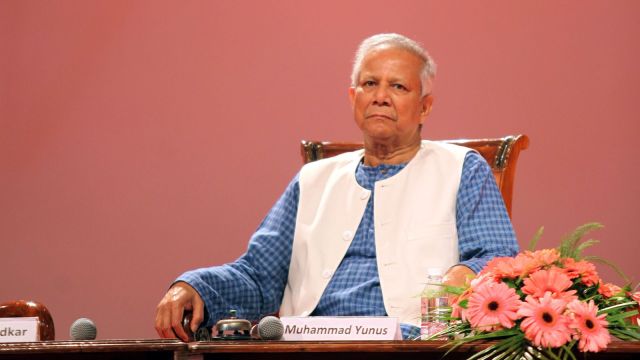
The International Crimes Tribunal (ICT) will announce the final verdict on November 17 on the charges framed against Sheikh Hasina, the former prime minister of Bangladesh. Hasina has outrightly rejected the validity of the trial, in which she is charged with crimes against humanity, and denied all charges. She has also urged members of the Awami League (whose activities have been banned) to enforce a “lockdown” in protest, accusing the Interim Government of turning Bangladesh into a hub of terror. For someone accused of frequently subverting democratic processes, there is a certain irony in her demanding free and inclusive elections.
Interim Government leader Muhammad Yunus has declared that an election and referendum over the July Charter will be held in February 2026. The Charter, born of last year’s youth uprising and signed by most political parties, pledges constitutional reforms to ensure accountability, transparent governance, a clear separation of powers, and robust democratic processes — areas repeatedly transgressed in the past. The Jamaat-e-Islami and National Citizens’ Party have closed ranks on its implementation, while the Bangladesh Nationalist Party continues to push for early elections.
Despite the Charter, Bangladesh has been unable to attain stability. In the initial weeks after Hasina’s overthrow, there was a complete breakdown of law and order — an outpouring of anger against her political legacy. Police reforms became central to restoring order, yet a new culture of mobocracy seems to have taken hold. Students, workers and pressure groups have increasingly turned to the streets, and protests have become the default mode for making demands.
While the Interim Government attempted to steady the economy and stabilise the polity, its efforts have fallen short. The visible mobilisation of various Islamic groups further complicated the social and political landscape. A new wave of political violence has sparked concerns about the post-revolution order.
Bangladesh is now witnessing a bitter struggle between the vanquished Awami League and the Interim Government. The Awami League’s ability to create chaos may demonstrate its street power, but it cannot erase the memory of Hasina’s political transgressions. Her international legal team continues efforts to build pressure against the International Crimes Tribunal trial, but the Interim Government is unlikely to back down, given the high-intensity anti-Hasina sentiment across the country. A guilty verdict may appear a formality, yet it will represent the justice long awaited by the martyred families of the July uprising — and of earlier injustices — and will likely overshadow all other political narratives.
The writer is Professor at the Jindal School of International Affairs, O P Jindal Global University, and a Non-Resident Senior Fellow at the Institute of South Asian Studies, National University of Singapore